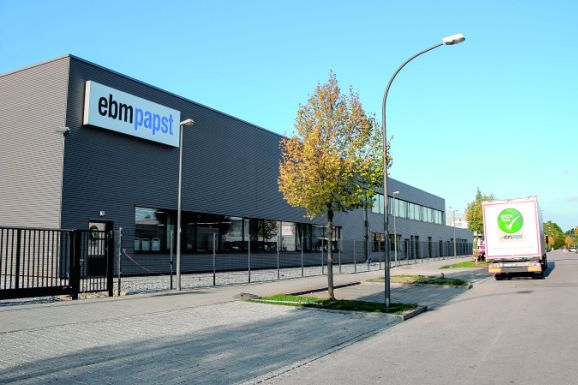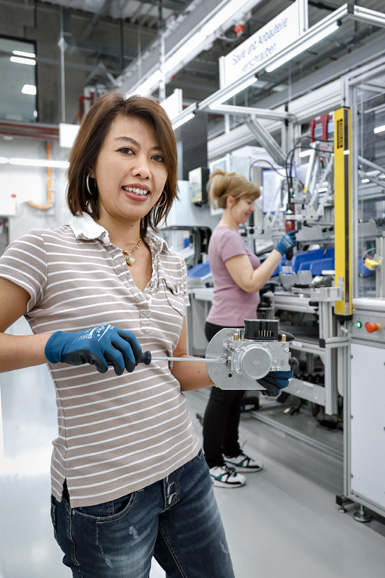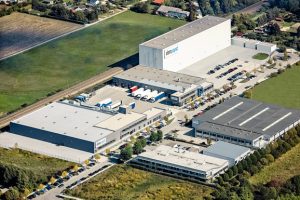Condensing or conventional heating? This question has been moot since September 26, 2015. That was the day on which a further measure in the implementation of the European Union’s Ecodesign Directive took effect. The directive, in force since 2009, is intended to drive the fight against climate change by gradually eliminating energy-wasting devices. Now that the new measure has come into force, considerably stricter standards apply for oil and gas boilers, heat pumps and heat storage units, and combined heat and power units. Manufacturers are not allowed to market new conventional heaters because they waste too much energy.
Condensing technology improves efficiency of heaters
Heating systems using condensing technology are an entirely different matter; they use the energy from the steam contained in the exhaust, which goes unused out the chimney in conventional systems. Condensing technology is really nothing new; ebm-papst has been developing and producing efficient blowers for the heating industry since the 1990s. “Condensing technology is the key to efficiency improvements in heaters. It enables savings of up to 35 percent compared with outdated conventional heating, and its emissions are lower,” says Stefan Brandl, Managing Director ebm-papst Landshut. So it was clear that the deadline would bring a jump in demand for condensing boilers — and their components as well.
Modern production plant for gas blowers and valves
The company wanted to be ready so it began construction on a new facility for the production of gas blowers and valves in November 2014. “We see it as our duty to supply our customers reliably and on time. But the space we had available for production wasn’t enough for the expected capacity increase,” says Landshut plant manager Karl Ruhland. Only nine months after the groundbreaking, people and machinery were able to move into the new plant, which houses three assembly lines, offices and R & D areas on total floor space of 5,000 square meters. Enough room to satisfy the expected increase in demand. “After the directive came into force in September, a regular wave of orders swept over us. Without new production capacity, we wouldn’t have been able to deal with it,” says Ruhland.
Demand for energy-efficient condensing units will increase
Demand for the energy-efficient condensing units will also increase in the long run as there is huge untapped potential in Germany’s households. According to Germany’s Federal Ministry for Economic Affairs and Energy, 40 percent of the country’s energy consumption is attributable to buildings, and much of that is due to heat generation. There is a substantial backlog of heating systems in need of modernization. More than five million of them are obsolete and inefficient.
We see it as our duty to supply our customers reliably and on time.
Karl Ruhland, plant manager at ebm-papst Landshut
As a result, concurrently with the Ecodesign Directive, the German government has also introduced the familiar EU energy efficiency label for heaters. Its intent is to motivate consumers to replace their old heaters with more efficient units. As it does for appliances such as refrigerators, the label indicates the energy efficiency class with a colored scale. Green stands for efficiency, dark red for the opposite.
Since January 1, 2016, heating installers and chimney sweeps have been authorized to affix the labels to boilers that are over 15 years old. Starting in 2017, they will even be obligated to do so. Then consumers will see at a glance whether they are wasting energy unnecessarily. Brandl is convinced that “The energy efficiency label will do its part to reduce the modernization backlog in heating systems.” For its part, ebm-papst will be able to easily deal with further increases in demand with the new plant in Landshut. Ruhland is also confident, saying “Right now we’re still working two shifts. If more orders come in, we can add another shift to increase production even more.”



Leave a comment